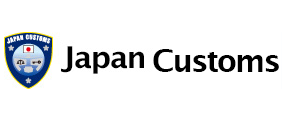4001 Outline of the Agreement between Japan and Singapore for an Economic Partnership
In October 2001, the two leaders of Japan and Singapore confirmed the conclusion of the negotiations on a bilateral Economic Partnership Agreement between Japan and Singapore (JSEPA), on the basis of a series of negotiations since January 2001. The JSEPA was signed by both countries in January 2002, and entered into force in November 2002.
The JSEPA is the first economic partnership agreement for Japan.
The Protocol Amending JSEPA entered into force in September 2007.
-
The JSEPA is expected to liberalize the trade in goods and services. The agreement also stipulates the promotion of bilateral cooperation in a wide range of areas, including financial services, information and communications technology, human resources development, small and medium enterprises and tourism, in order to further strengthen economic relations between Japan and Singapore.
-
2. The significance of the agreement
Singapore is Japan's 8th export partner and 20th import partner (2023 Trade Statistics, Ministry of Finance).
The JSEPA is expected to create more attractive markets through closer cooperation between markets in the two countries, and provide stimulation for economic reforms in both countries as well as revitalizing of the economies of the two countries. It also complements and reinforces the multilateral trading system, develops closer political and diplomatic relations between the two countries, and promotes greater mutual understanding between their respective citizens.
-
3. The key elements in the agreement
(1) Trade in goods: Agreement of comprehensive tariff elimination and reduction for mining and industrial products, and for agricultural products in bilateral trade.
(2) Customs procedures: Simplify customs procedures, cooperate on harmonizing with international standards
(3) Services: Liberalize trade in services between the two countries beyond WTO commitments
(4) Investment: Create an environment that makes it easier for investors in one country to invest in the other by protecting investors and investments, according national treatment to investors and investments in principle, ensuring the appropriate compensation in the event of expropriation and securing free transfer of payments
(5) Intellectual property: Facilitate the patenting process in Singapore by providing the Intellectual Property Office of Singapore with an examination report by the Japan Patent Office
(6) Movement of natural persons: Facilitate the movement of natural persons between the two countries for business purposes and recognize professional qualifications mutually
(7) Trade and investment promotion: Cooperate to promote trade and investment between the two countries. (e.g. Missions and seminars, Business study missions to third countries, Sharing JETRO-TDB online databases of Singapore and Japanese companies) -
4. Summary of the Protocol Amending JSEPA
(1) Tarde in goods: Japan commenced tariff reduction for mangos, durians, asparagus, processed curry products, finished timber, prawn, etc., in the agricultural, forestry and fisheries category and some petroleum and petro-chemical products in the mining and industrial products category (starting on January 1, 2008) for tariff elimination within 10 years. As a result, tariffs have been scrapped for roughly 95% of imports from Singapore.
(2) Safeguard measures: The effective period of the safeguard measures has been extended from "less than one year as a general rule and three years at most in exceptional cases" to "less than two years as a general rule and four years at most in exceptional cases." Also, an introduction of tentative measures has been added.
(3) Customs procedure: Provisions have been added for greater transparency in customs procedure.
(4) Financial services: Singapore added revisions, such as the elimination of restrictions on the number of wholesale banking licenses issued and the addition of concessions on full bank licensing (for one bank).
For consultations on customs procedures, please contact the nearest Customs Counselor.
Please see No. 9301 for inquiries.

